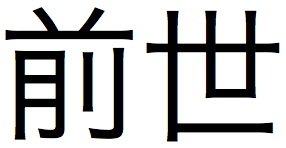I have a new column up on the Japan Times: “Particles create the chemistry of adjectives and adverbs.”
I actually drafted a blog post along these lines (with the whole chemistry analogy) way, way, waaay back in the day (when I was posting thrice weekly) but lost it to a hard drive crash. I remembered it recently because I was thinking about おいしく.
I loved the way that my roommate used the word—I don’t think I’d ever heard it used that way before. A quick Google search shows 4 million plus hits for おいしそうに and only 618,000 for おいしく, so it is somewhat odd/infrequently used. Each of those could technically be translated as “deliciously,” depending on the context.
This all inspired me to put together a quick power rankings of Japanese adverbs. Here you have it:
5. 悔しく
4. 適当に
3. 早く
2. おいしく
1. ちょっと
I assume that 悔しく gets used? It’s one of my favorite adjectives, so I put it on the list. 適当に is another fave, and I’ve written about it in the past. 早く takes third mostly because I was imagining a whiny kid saying 母ーさん、早く〜(HAyaKUUUU). おいしく is wonderful, as I previously mentioned.
I think the reason why おいしく and perhaps 悔しく are so interesting as adverbs is that as adjectives they are more “performative” rather than “descriptive.” 悔しい is what someone says when something sucked. おいしい is what someone says when something is delicious. They are connected equally (if not more so) with the state of the partaker as with that of which is partaken; in other words, how the partaker feels having partaken (in something delicious or a shitty experience).
Other adjectives such as 暑い, 遅い, 静か, etc. are more objective and relate to the object only. Adjectives don’t always work this way in English: Saying “that was delicious,” while equally subjective, feels closer to my bowl of ramen than うまい or おいしい does. …if that makes any sense.
Of course, only ちょっと can be the number one. I love it because of its frequency and variety of use and because it is one exception to the beautiful uniformity of く and に adverbs.
Are there any others that I’m missing?


